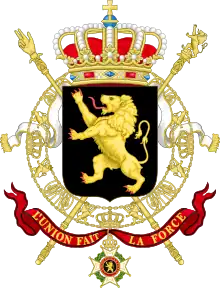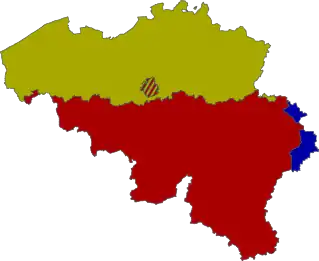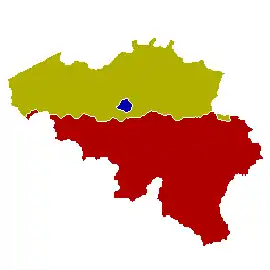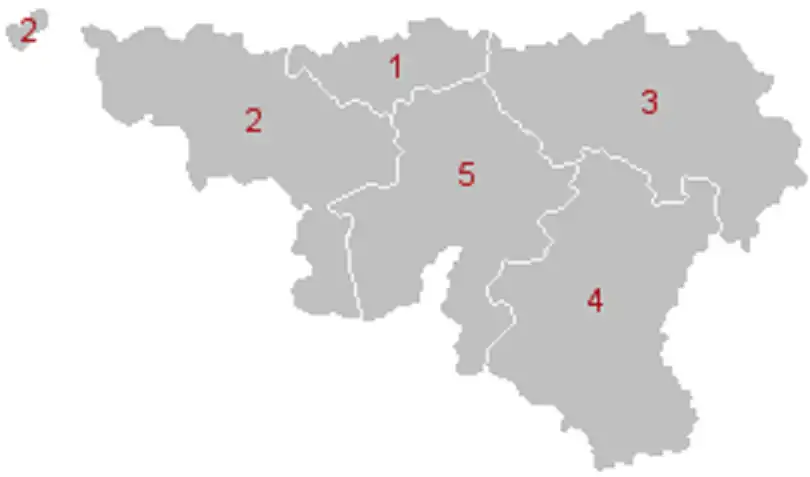 |
|---|
|
|
The table below provides a schematic and hierarchic overview of the institutions of the Belgian federated state, according to the principle of the Trias Politica (the theoretical concept of the Separation of political powers) in law-making, executive and judicial powers (the horizontal separation of powers) and according to their territorial level or so called subsidiarity (the vertical separation of powers).
| Geographic level | Legislative power | Executive power | Judicial power |
|---|---|---|---|
| Belgium: National level (federation) | Federal parliament : is a bicameral parliament like in Britain and consist of the Senate and the Chamber of Representatives | The King of the Belgians is the head of State (mainly ceremonial duties), the executive power is executed by the bilingual Belgian Federal government (Council of ministers) | Council of State, Constitutional Court of Belgium, and the Court of Cassation |
| Community level: the communities are competent in so called "personal matters" (except religious affairs) such as culture, sports and education |  |
||
| Dutch-speaking community : covers the territory of all Flemish provinces and Brussels (*) | Flemish Parliament counts 124 directly elected members (118 from the Flemish provinces + 6 Brussels members) | Flemish government | Council of State |
| French-speaking community : all Walloon provinces (except the German-speaking communities ) and Brussels | Parliament of the French Community: 94 members (75 Wallon provinces + 19 Brussels members) | French Community Government | Council of State |
| German-speaking community: German speaking municipalities | Parliament of the German-speaking community | Government of the German-speaking community | Council of State |
| Regional level: Regions: The regional political institutions are competent for regional matters like urbanisation, economy, agriculture and fishery, public infrastructure & traffic, international trade, the law and decrees governing local administrations and monitoring of the municipalities and provinces. |  |
||
| Flemish region : The legislative and executive competences of the Flemish region and Dutch-speaking community have been combined ; All Flemish provinces except the 19 communities of the Brussels region | Flemish Parliament counts 118 directly elected members | Flemish government | Council of State |
| Walloon region : All Walloon provinces except the Brussels region | Parliament of Wallonia | Government of Wallonia | Council of State |
| Brussels Capital region | Brussels Capital parliament | Brussels Capital government | Council of State |
| Subregional levels | |||
| Provincial level
|
Provincial council | Provincial Governor Deputies | 5 courts of appeal, 11 court of assizes |
| Arrondissement | Arrondissemental commisar (formerly Prefect under French occupation) | Tribunal of first instance | |
| Cities and local communities councils | Community councils | Mayor and Aldermen | Justice of the peace, police tribunal |
(*) a part of the executive responsibilities in Brussels are executed by the Flemish Community council (for Brussels) (VGC). This is not a government but a subsidiary executive organ.
References
External links
This article is issued from Wikipedia. The text is licensed under Creative Commons - Attribution - Sharealike. Additional terms may apply for the media files.

